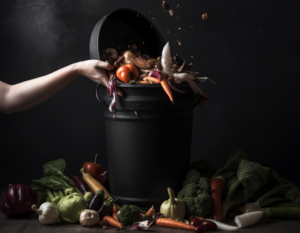Let’s get right to the point: large-scale food waste in this day and age is completely unacceptable.
Around one-third of all food produced worldwide is lost or wasted, which is equivalent to around 1.3 billion tons of food each year. Why? With our complex logistics systems, tracking abilities and near-infinite means of communicating, how is this issue still so widespread?
Food waste happens everywhere, whether it be at the consumer level, in transit or during production. And this comes at a time when we need more food than ever to support Earth’s rapidly growing population. Many have heard that, according to the United Nations, the world population is expected to reach 9.7 billion by 2050, which means that food production will need to increase by about 50 percent to meet demand. But this estimation is based on the assumption that people will continue to consume a similar diet to what they do today.
So, what can we do to resolve these long-standing issues?
Dietary changes could drastically impact food demand. As incomes rise, people often consume more meat and dairy products, which require more resources to produce than plant-based foods. If the world’s population continues to shift toward a more Western-style diet, food production will need to increase even more.
Second, grow plant-based foods NEAR THE CONSUMER! We need to move the farms and not the food. It’s better for our environment, and growing near the end-user means the food arrives in refrigerators and on plates much quicker. In short, the more time people have to eat their veggies, the less of it will be thrown away.
Third, we should be working with food recovery agencies — almost every major city has one — to make sure the food that has been produced reaches someone who can eat it.
Last year, the Feeding America network and its partners rescued 3.6 billion pounds of groceries that otherwise would have been wasted. That food went directly to meals for people facing hunger. FarmBox Foods has worked with We Don’t Waste in Denver to repurpose what the company wasn’t able to sell.
There’s little doubt that we need sizable shifts in how we do things, but the roadmap for improvement is there. We just need to follow it.
